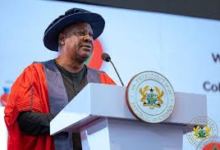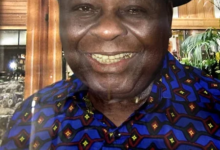Indian High Commissioner advocates rural industrialisation for Ghana

The Indian High Commissioner in Ghana, Mr Sugandh Rajaram, has suggested that government should make interventions aimed at industrialising Ghana’s rural areas.
This he said would ensure that agriculture produce were harnessed to feed industries to produce finished and semi-finished goods.
Mr Rajaram made the call when he met journalists on Sunday, as part of a week-long tour of the Upper West Region, to identify possible areas of co-operation and bilateral relations between India and Ghana.
He noted that Ghana and India shared similar features; as agricultural countries with larger rural population and agrarian communities that produced food mostly for sale without the capacity to convert food items into finished products for more revenue.
Mr Rajaram said he would as part of his visit, interact with major stakeholders in the region, including the Regional Coordinating Council, traditional authorities, educational stakeholders and the chamber of commerce, to help him identify potentials, strengths and critical areas for investment and collaboration.
“Agricultural produce are found in rural areas, so any effort aimed at contributing to the development of Ghana should focus basically on rural majority by establishing more industries to harness the potentials in these areas”, he said.
The High Commissioner indicated that Ghana, just like India was endowed with rich natural resources, but lacked the required capacity and the maximum human resource to exploit the resources.
“This deficiency is due to the many years of colonialism which set the tone for the organisation of educational facilities and systems available in the country now.”
There, is therefore, the need to discontinue this trend in order to train graduates to champion the development of the country. As part of our co-operation with Ghana, we make conscious efforts to train the human resource and capacity through scholarships and other interventions”, Mr Rajaram said.
He said “India shares common strategic traits with Ghana – such economic and political history as India has been one of Ghana’s largest trade partners until recently when the narrative changed”.
FROM LYDIA DARLINGTON FORDJOUR, WA





